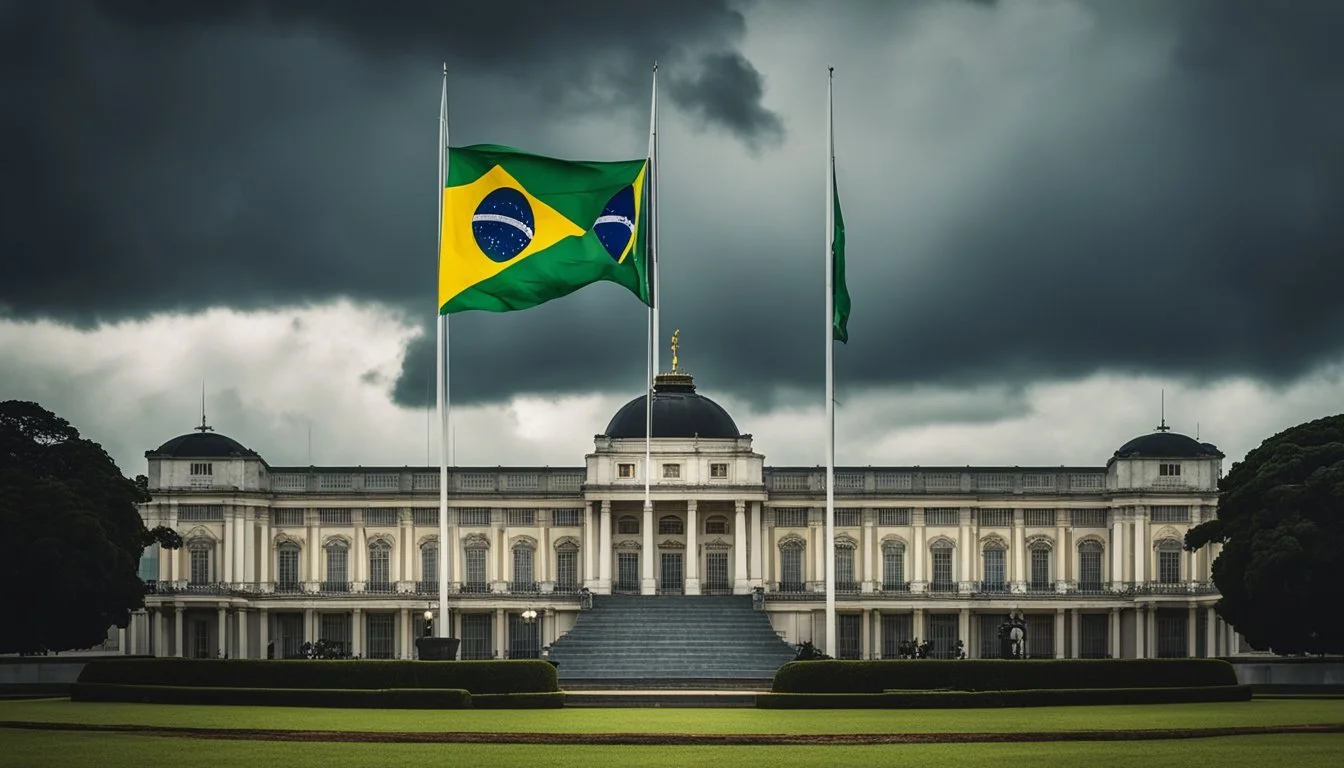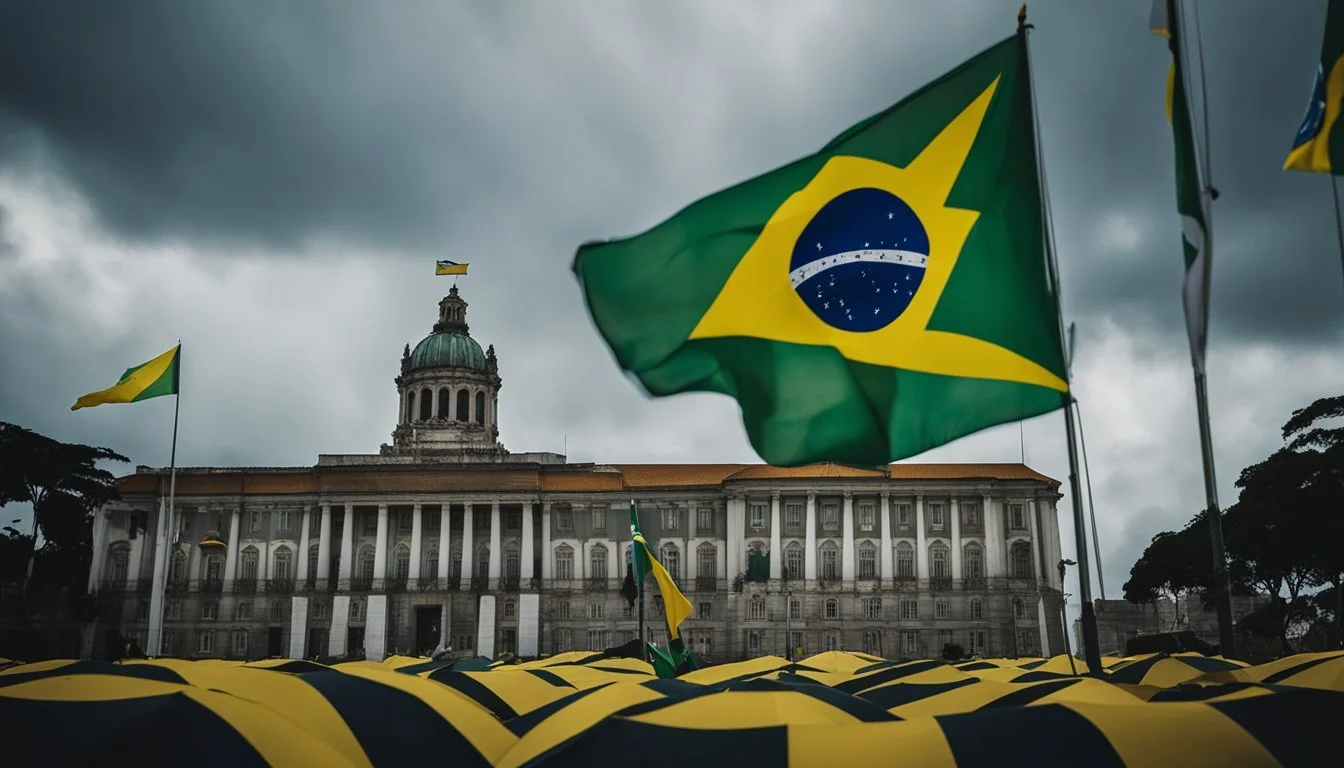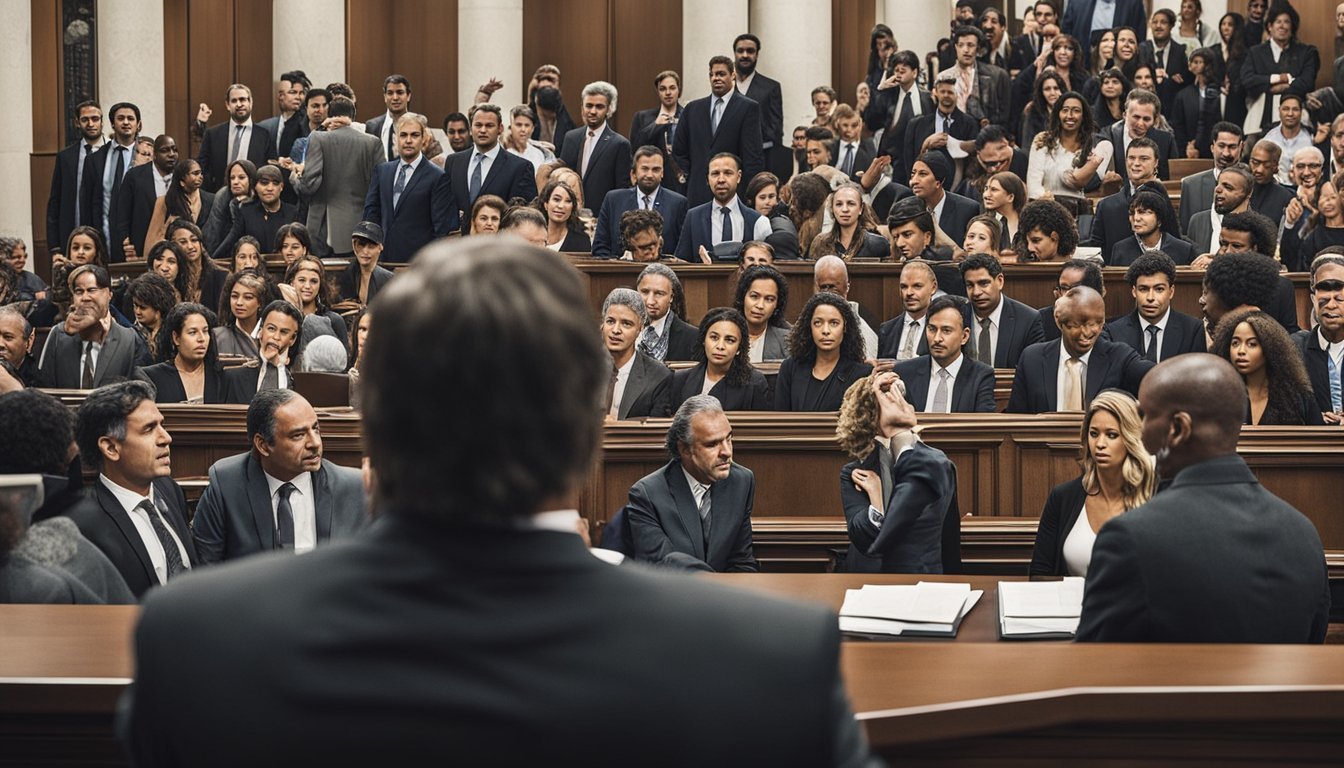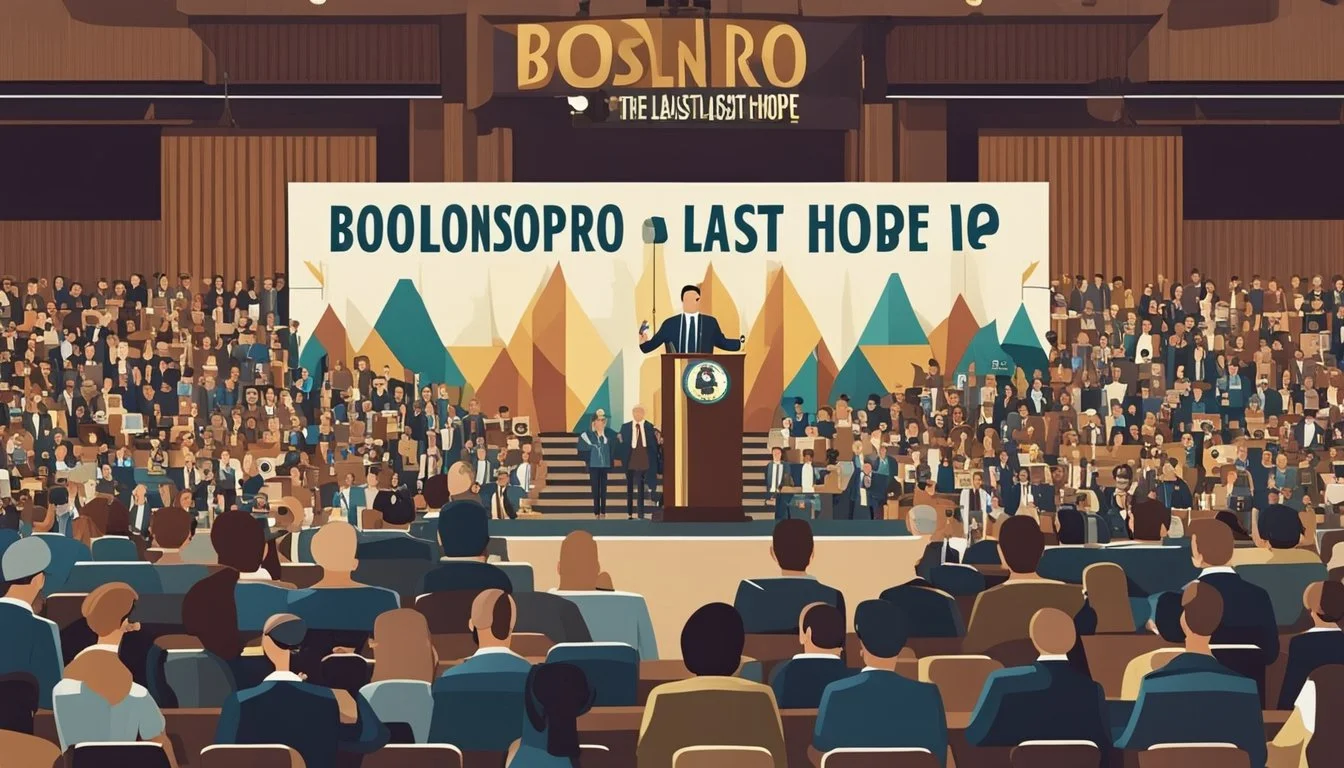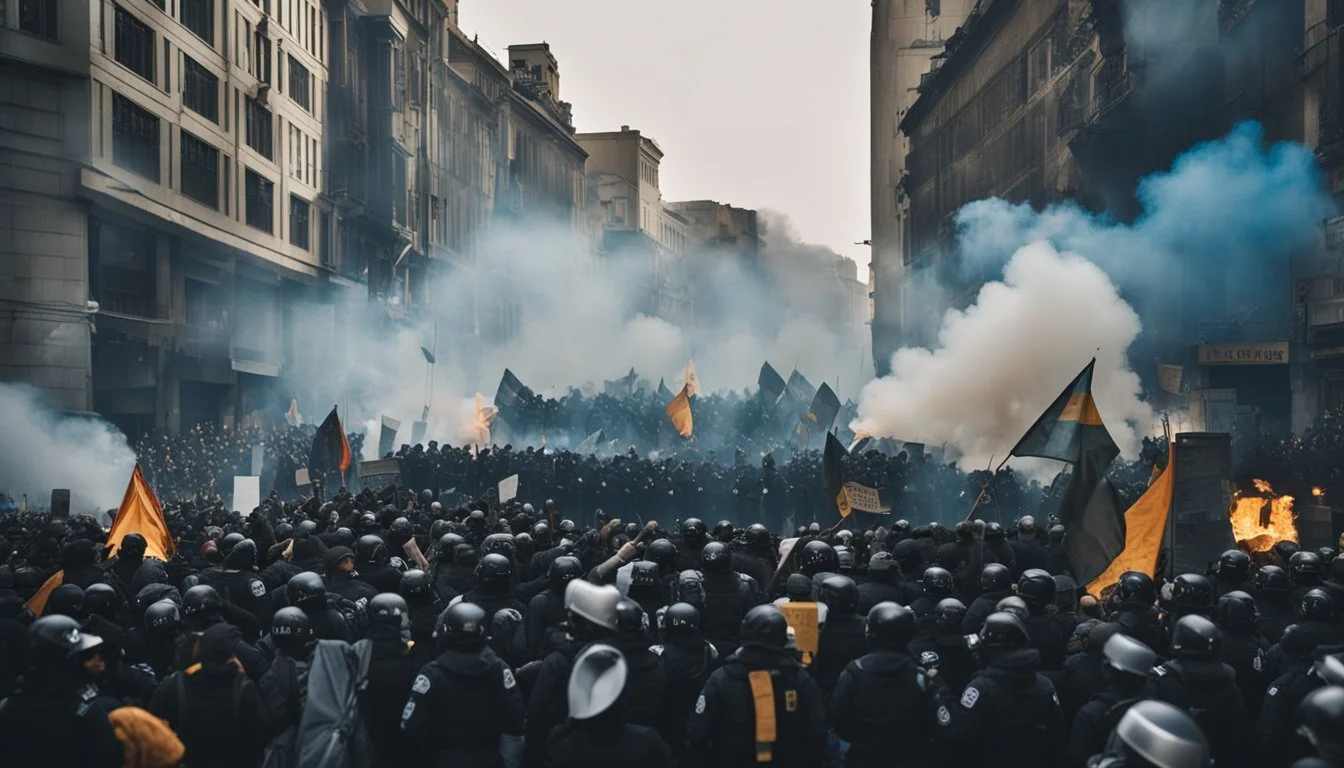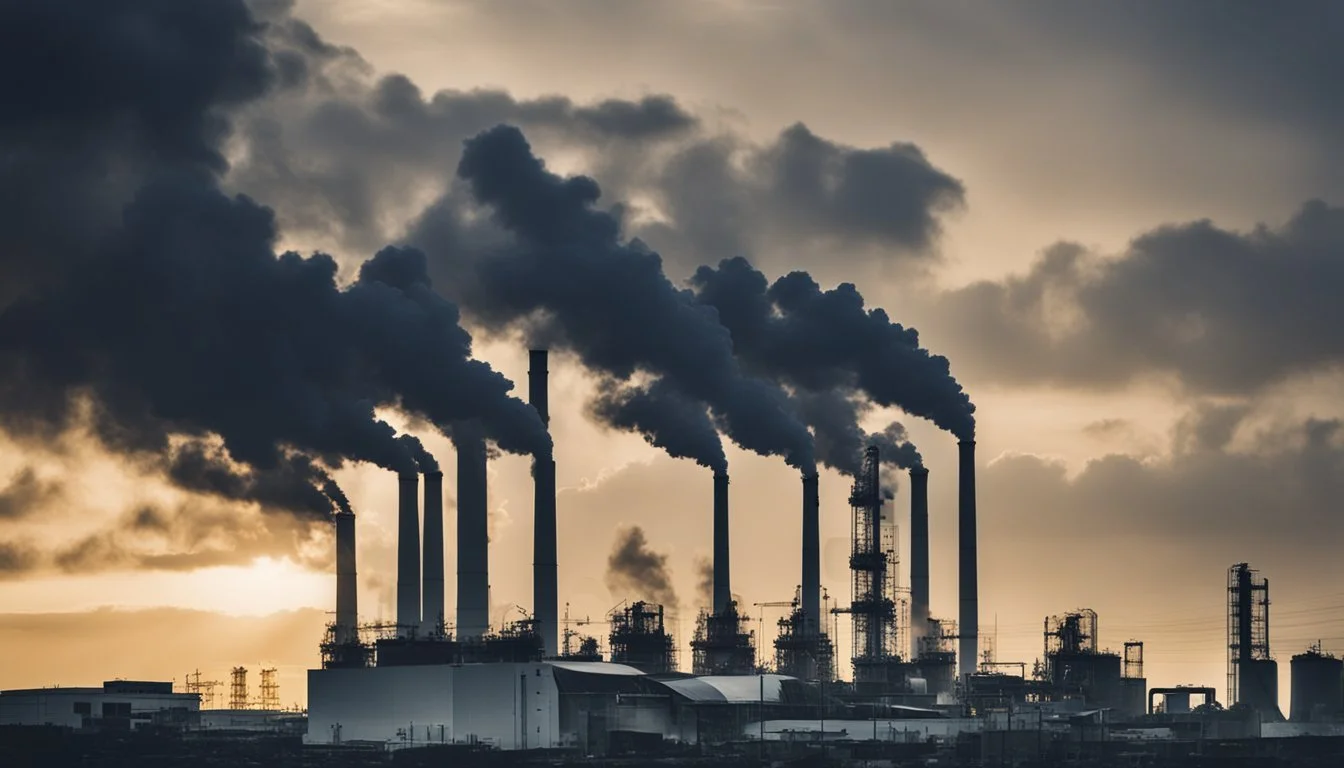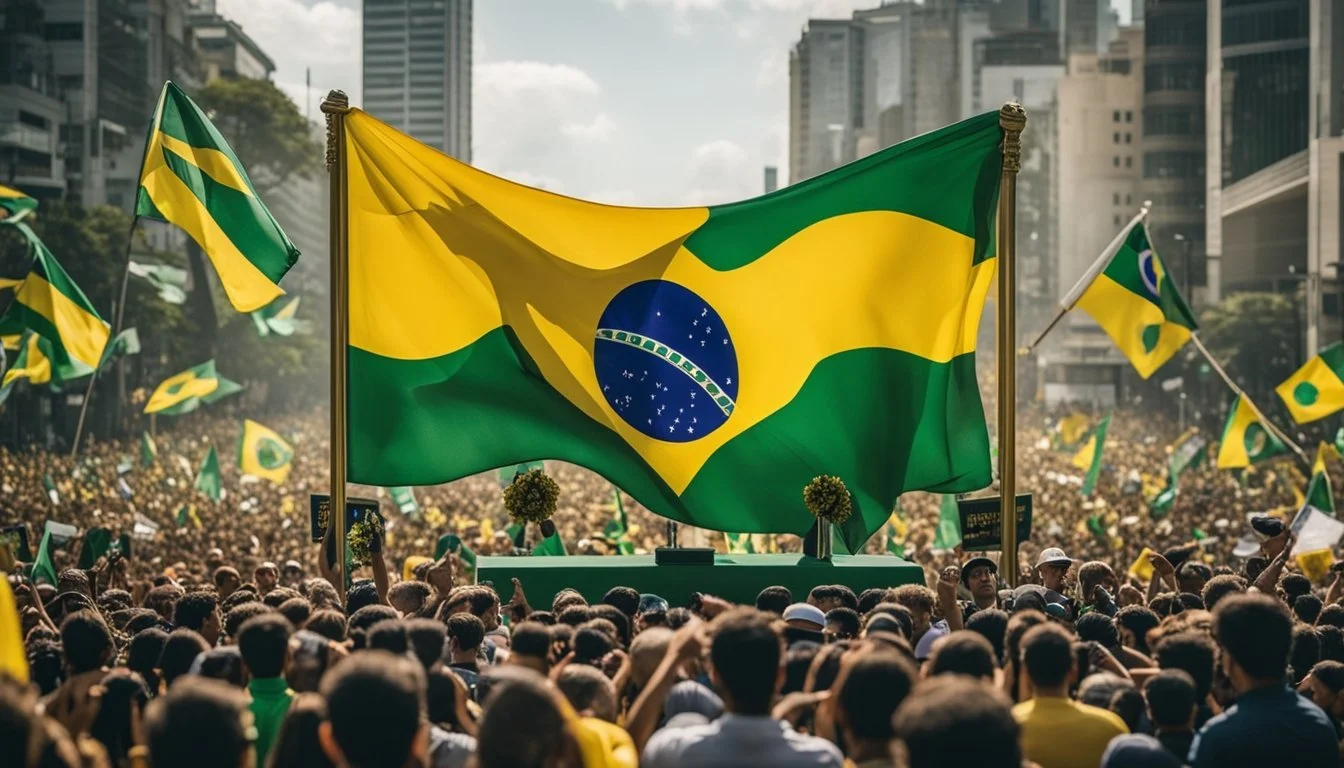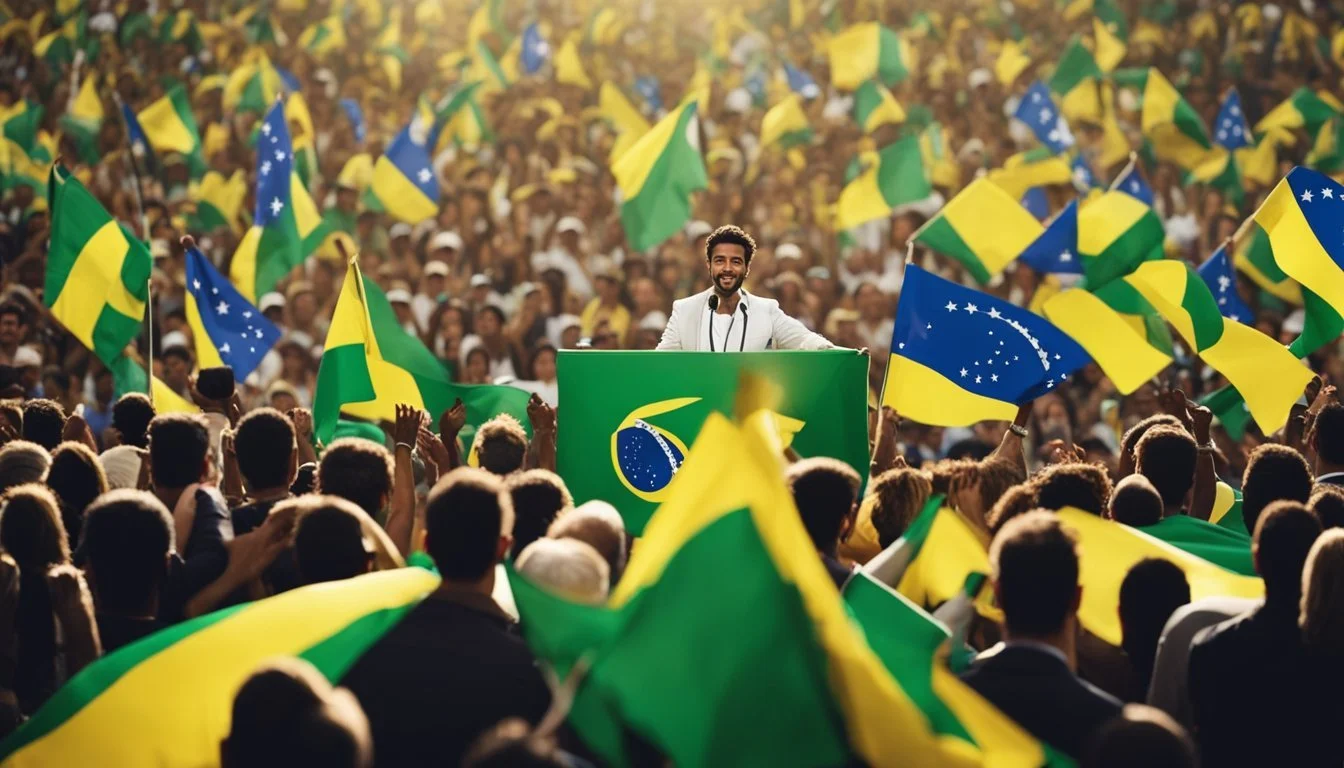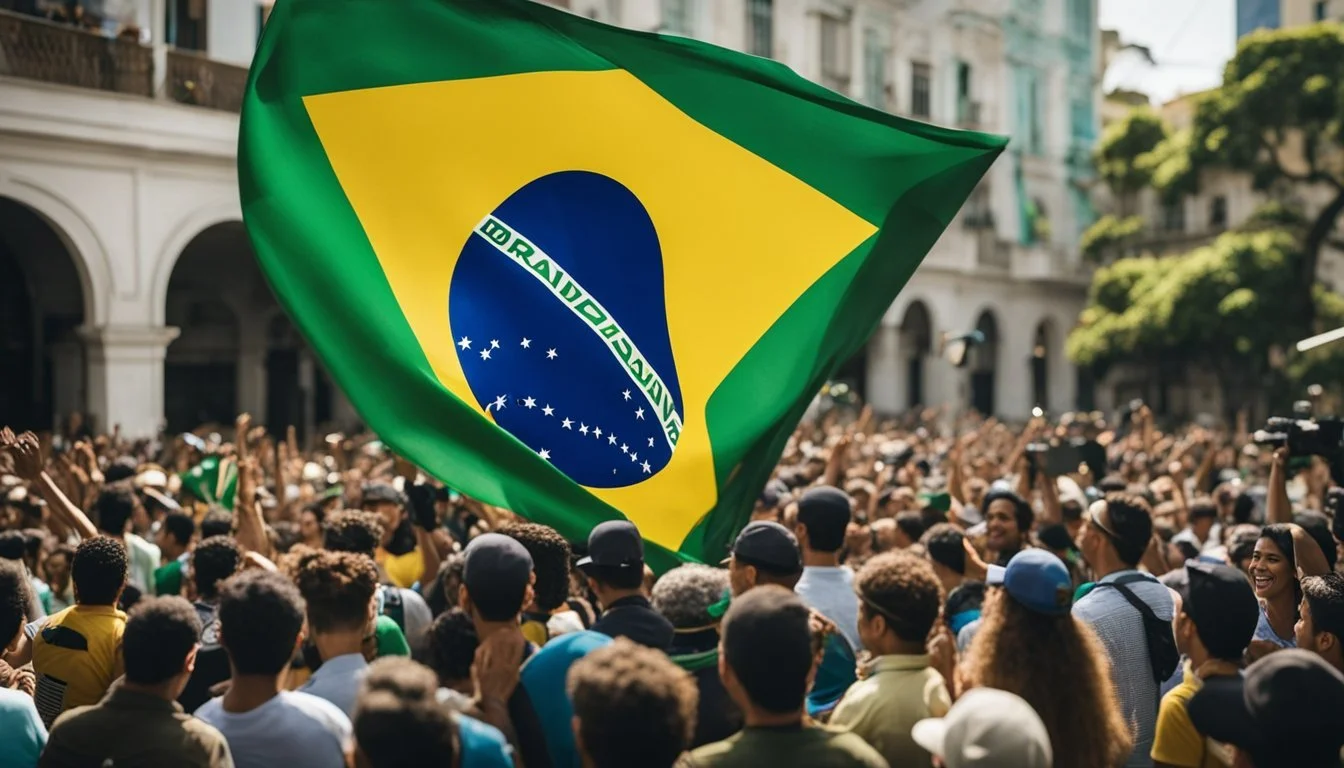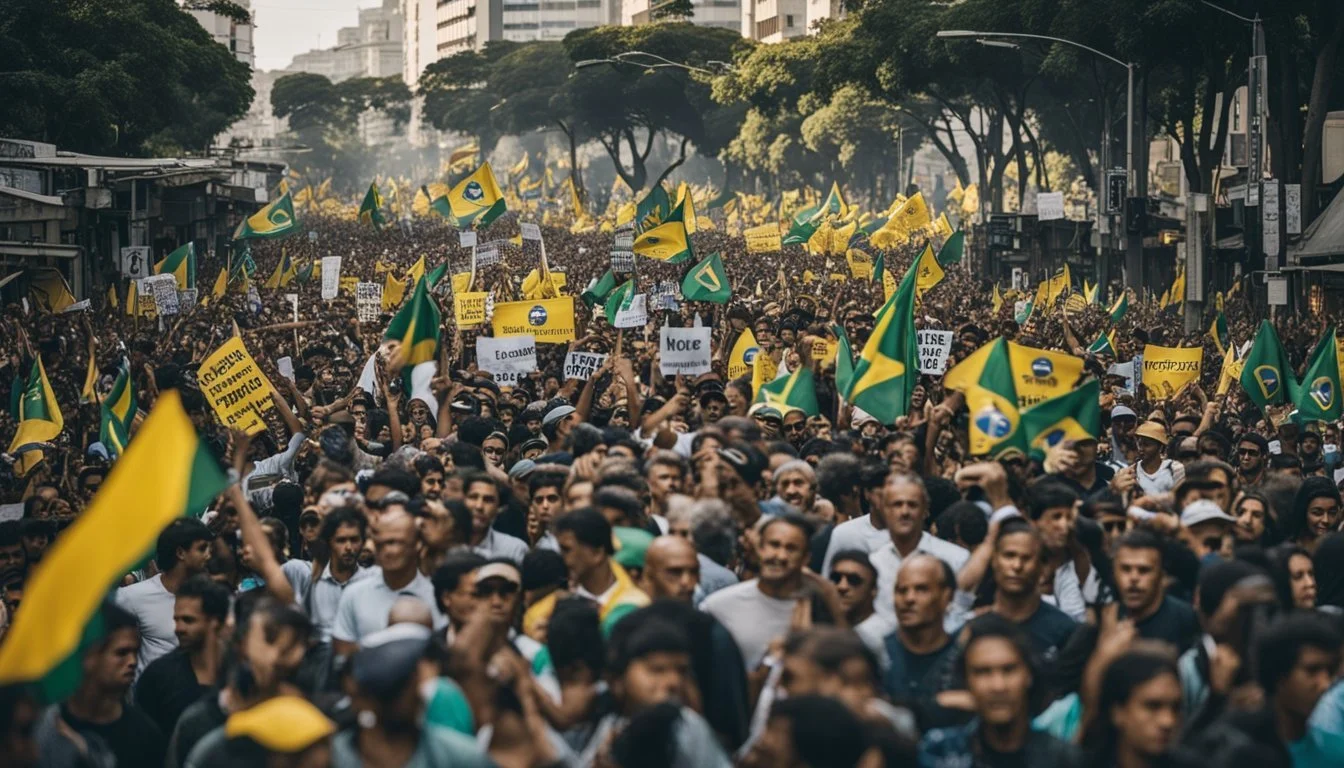15 Films Investigating the Controversial Presidency of Jair Bolsonaro
A Deep Dive into Political Turmoil
The presidency of Jair Bolsonaro has been one of the most polarizing political events in contemporary Brazil. A myriad of films have sought to investigate and critique his leadership, delving into themes of populism, social inequality, and human rights. These films offer a cinematic lens through which viewers can assess and reflect on the broader implications of his policies and rhetoric.
Why are filmmakers so drawn to Bolsonaro's presidency as a subject? The turbulent nature of his term, marked by controversies and staunch right-wing positions, has provided a fertile ground for storytelling. By examining these narratives, audiences gain a deeper insight into the complexities and challenges that have defined Bolsonaro's time in office.
1) The Edge of Democracy (2019)
"The Edge of Democracy," directed by Petra Costa, is a 2019 Brazilian documentary that explores the political climate in Brazil.
The film follows the political careers of Presidents Luiz Inácio Lula da Silva and Dilma Rousseff, framing their rise and fall within the broader context of Brazilian democracy.
It offers a personal perspective by intertwining Costa's own family's history with the nation's political turbulence, providing an emotional lens through which viewers can understand Brazil's socio-political crises.
Jair Bolsonaro, Brazil's current president, is discussed in relation to the political events the documentary covers, making the film relevant to understanding his controversial ascent to power.
2) Brazil: A Report on Torture
"Brazil: A Report on Torture" (1971) is a documentary that examines the use of torture by the Brazilian military dictatorship.
The film features interviews with former political prisoners who describe their experiences with torture. These narratives are supported by documented evidence and medical reports detailing the physical and psychological impact on the victims.
The documentary also presents testimonies from family members and others affected by the regime's oppressive tactics. These accounts offer a harrowing look into the pervasive climate of fear and the lengths to which the government went to silence opposition.
Directed by Haskell Wexler, Saul Landau, and Dennis Muñoz, the film illustrates the harsh reality of life under the military dictatorship in Brazil. It also sheds light on the broader implications for human rights and the resilience of those who fought against oppressive systems.
For more information on "Brazil: A Report on Torture" (1971), visit Wikipedia.
3) The Trial of the Chicago 7 (2020)
"The Trial of the Chicago 7" is a historical legal drama directed by Aaron Sorkin. This film centers on the trial of seven anti-Vietnam War protesters. Charged with conspiracy and inciting riots, they faced significant legal battles following the 1968 Democratic National Convention in Chicago.
The movie showcases an ensemble cast, including Sacha Baron Cohen, Yahya Abdul-Mateen II, and Eddie Redmayne. It addresses the intense courtroom drama and the broader social and political context of the late 1960s.
For those interested in both historical legal battles and dramatic courtroom scenes, "The Trial of the Chicago 7" provides a compelling watch.
4) Bolsonaro: The Last Hope
"Bolsonaro: The Last Hope" (2023) examines the controversial reign of Jair Bolsonaro through a fictionalized lens. The film portrays his rise to power, highlighting his populist rhetoric and promises to revitalize Brazil. It delves into his policies and how they sparked both fervent support and vehement opposition.
The narrative follows Bolsonaro’s election campaign, showcasing his use of social media to galvanize supporters. The film also touches upon his handling of economic challenges and environmental issues, presenting varying public reactions.
Conflict is a central theme, depicting clashes between Bolsonaro's administration and various political factions. The storyline unravels the complexities of his leadership style, emphasizing the polarizing nature of his governance.
The depiction of Bolsonaro’s interactions with global leaders offers insights into his diplomatic strategies. The film does not shy away from controversies, including allegations of corruption and authoritarian tendencies.
"Bolsonaro: The Last Hope" provides a dramatized reflection on a tumultuous period in Brazil’s history, urging viewers to contemplate the delicate balance between hope and disillusionment.
Bolsonaro: The Last Hope (2023) - IMDb
5) The Mechanism (2018)
The Mechanism, a film created by José Padilha, explores corruption within the Brazilian government. The plot centers on Operation Car Wash, a real-life scandal that uncovered extensive bribery, money laundering, and political corruption.
Bolsonaro's presidency is tangentially connected through the broader conversation on systemic corruption and the power structures within Brazil. While the film itself predates Bolsonaro's time as president, it provides context for understanding the political climate he navigated.
By examining various aspects of political and corporate malfeasance, The Mechanism gives viewers insight into the challenges faced by Brazilian leaders and the pervasive corruption that complicates governance in Brazil.
The film also highlights the role of law enforcement and the judiciary in tackling corruption, showing the complexities and risks involved in such massive investigations. It showcases the impact of whistleblowers and the importance of accountability in public office.
Ultimately, The Mechanism offers a foundational understanding of the issues that continue to influence Brazilian politics, making it a critical viewing for those researching Bolsonaro's era. For those interested in the film, more information can be found on IMDB.
6) The Inspectors
"The Inspectors" (2021) provides a detailed examination into the investigations surrounding Jair Bolsonaro's presidency. This film delves into the various criminal probes initiated against the former Brazilian president.
Centered on key figures like Almir Garnier, former navy head, the film explores allegations of a coup plot attempting to keep Bolsonaro in power.
The narrative captures the intensity of these high-stake inquiries, shedding light on Brazil’s political turmoil during Bolsonaro’s tenure.
A significant part of the documentary includes interviews with law enforcement and government officials, adding depth to the storyline.
By presenting these complex legal and political issues, "The Inspectors" offers a comprehensive look at the controversies faced by Bolsonaro's administration. IMDb
7) Democracy in Vertigo (2019)
"Democracy in Vertigo" offers a close examination of the political turmoil in Brazil around the impeachment of President Dilma Rousseff. Directed by Petra Costa, the film provides a personal lens through which the audience can view the rise of far-right politics in the country.
Costa uses her family's history to underscore the deep political divide in Brazil. The film reveals the complexities of the political landscape, highlighting how corruption scandals and political maneuvers led to Rousseff's ousting.
The documentary also delves into the rise of Jair Bolsonaro and his controversial presidency. It provides context by linking it to the decades-long struggle for democracy in Brazil, giving a sense of continuity to the nation's ongoing political saga.
"Democracy in Vertigo" intertwines historical footage with personal narratives, making the political deeply personal and accessible. Costa's storytelling merges the macro-political events with the micro-personal impacts, showing how national politics affect individual lives.
For more information about "Democracy in Vertigo," visit IMDb.
8) American Factory (2019)
"American Factory," directed by Steven Bognar and Julia Reichert, provides an insightful look into the clash of cultures and labor practices between American workers and Chinese management.
Set in post-industrial Ohio, a Chinese billionaire reopens a closed General Motors plant, raising hopes for job creation. Friction soon emerges as the two groups navigate differing expectations and work ethics.
Released in 2019, the film captures the struggles and aspirations of the working class in a globalized world. It underscores the complexities of labor relations in contemporary economies.
9) Our Brand is Crisis (2015)
"Our Brand is Crisis" is a blend of comedy and drama directed by David Gordon Green. This 2015 film centers on American political consultants who work on the presidential campaign in Bolivia. It provides a fictionalized portrayal of their strategies and maneuvers.
Sandra Bullock stars as Jane Bodine, a seasoned consultant hired to assist with the re-election of a controversial Bolivian president. Billy Bob Thornton plays her long-time rival.
The film draws inspiration from the 2005 documentary of the same name by Rachel Boynton. It reflects on the intense political landscape and the impact of foreign consultants.
External Link: Our Brand is Crisis - IMDb
10) Get Me Roger Stone (2017)
"Get Me Roger Stone" delves into the influential yet controversial figure of Roger Stone, a Republican political strategist and longtime advisor to Donald Trump.
Directed by Dylan Bank, Daniel DiMauro, and Morgan Pehme, this 2017 documentary provides an in-depth exploration of Stone's role in shaping modern political tactics.
The film tracks Stone's career from his early days working for Richard Nixon to his involvement in Trump’s rise to power.
Viewers get insights into his unconventional and frequently controversial methods, which have made him a polarizing figure in American politics.
Stone's unapologetic approach to politics is captured through interviews with him and his associates, providing a clear picture of his significant yet contentious impact.
A notable feature of the documentary is its focus on Stone's reputation for so-called "dirty tricks," shedding light on his unique approach to campaigning.
For more details on the film, visit Wikipedia.
11) Dirty Money: The Confidence Man (2018)
"Dirty Money: The Confidence Man" is an episode from the Netflix documentary series "Dirty Money."
This episode investigates the business strategies and financial maneuvers of Donald Trump. It delves into his rise in the business world, the challenges during the 1990s, and various controversies surrounding his deals.
Through interviews and archival footage, it showcases the impact of Trump's business dealings on people and entities. The episode provides detailed insights into his approach to business and questions the ethics behind some of his decisions.
Viewers gain a deeper perspective on Trump's financial history and the implications of his business practices.
12) Active Measures
Active Measures (2018) is a documentary that sheds light on political manipulations and disinformation campaigns.
The film covers various global instances, with particular emphasis on the interference in democratic processes. It explores the concept of hybrid warfare and strategic maneuvers aimed at destabilizing countries from within.
It discusses in detail the tactics and methods used by various state actors to achieve political goals through covert operations.
The film provides insights into the broader context of political maneuvers and connects these tactics to present-day events, making it relevant for understanding the controversial actions of figures like Jair Bolsonaro.
13) The Great Hack (2019)
The Great Hack is a documentary that dives into the complex world of data privacy and manipulation. It highlights the controversial practices of companies like Cambridge Analytica, focusing on how data was used to influence political events, both in the United States and globally.
The film explores the broader implications of data exploitation on democracy and personal freedom. It includes interviews with key figures involved in the scandal, providing a detailed look at how data was weaponized during key political campaigns.
While the documentary does not directly address Bolsonaro's presidency, it offers valuable insights into the kind of digital influence that has played a role in recent political climates around the world. This makes it a relevant inclusion when considering global patterns of political manipulation.
More information on the film here.
14) The Social Dilemma (2020)
"The Social Dilemma" is a 2020 docudrama directed by Jeff Orlowski.
The film primarily explores the impact of social media on society.
While it does not focus solely on Jair Bolsonaro, its insights are relevant to understanding the digital strategies that played a role in his rise to power.
The documentary highlights how social media platforms can influence public opinion and political dynamics.
Given Bolsonaro's proven use of social media in campaigning and governance, this film offers significant context.
The dramatized narrative within the documentary further illustrates how individuals and families are affected by social media, paralleling the mass polarization seen in Brazilian politics.
For more information about "The Social Dilemma," visit Wikipedia.
15) Citizenfour (2014)
Citizenfour, directed by Laura Poitras, is a gripping documentary centered on Edward Snowden and the NSA spying scandal.
The film showcases Snowden's revelations about global surveillance programs. It captures his interactions with journalists Glenn Greenwald and Ewen MacAskill.
Though not directly about Jair Bolsonaro, Citizenfour's examination of state surveillance and privacy impinges on broader discussions about government overreach relevant to Bolsonaro's presidency.
The documentary was awarded the Academy Award for Best Documentary Feature in 2015.
For more information, visit Wikipedia.
Historical Context of Jair Bolsonaro's Presidency
Jair Bolsonaro's rise to power in Brazil marked a significant shift in the country's political landscape. His presidency was defined by both fervent support and contentious debate.
Political Rise
Jair Bolsonaro, a former army captain and long-term congressman, began his political journey as a representative for Rio de Janeiro. Known for his right-wing views, he gained public attention through controversial statements and a strong stance on law and order.
In the 2018 presidential election, Bolsonaro positioned himself as an outsider to traditional politics. He leveraged widespread dissatisfaction with corruption in Brazil, particularly following the Operation Car Wash scandal, which implicated numerous politicians. His campaign rhetoric promised a secure, crime-free nation, resonating with many Brazilians exhausted by political scandals.
Bolsonaro won the presidency with 55.1% of the valid votes, defeating the Workers' Party candidate, Fernando Haddad. His victory reflected a broader shift towards conservative politics in Brazil, driven by economic instability and public frustration.
Campaign Promises and Controversies
Bolsonaro's campaign centered on the slogan "Brazil before everything, and God above all." He vowed to combat corruption, revive the economy, and reduce crime. His platform also included reducing government intervention in the economy and promoting conservative social values.
Despite his promises, Bolsonaro's campaign was marred by controversies. Critics highlighted his nostalgia for Brazil's military dictatorship and his often incendiary comments on social issues. His rhetoric appealed to a segment of the population yearning for a return to perceived order and simplicity.
Internationally, Bolsonaro's statements and policies drew mixed reactions. Allies appreciated his pro-business stance, while many global leaders and organizations criticized his environmental policies, particularly regarding the Amazon rainforest.
His tenure began on January 1, 2019, heralding a new and contentious era in Brazilian politics. His presidency would go on to heavily influence the country's domestic and international relations.
Film Analysis and Perspectives
Many films investigating Jair Bolsonaro's presidency employ diverse documentary styles and techniques, portraying varied narrative themes and storytelling methods. These approaches shed light on Bolsonaro's policies and controversial impact on Brazil.
Documentary Styles and Techniques
Filmmakers utilize a range of documentary styles, from observational to expository. Observational documentaries capture real-life events as they unfold, providing an unfiltered view of Bolsonaro's actions and their repercussions.
In contrast, expository documentaries often include interviews with political analysts, journalists, and individuals directly affected by Bolsonaro's policies. Combining archival footage with contemporary interviews helps frame Bolsonaro's presidency within a historical context.
Cinematic techniques such as the use of dramatic music and symbolic imagery further accentuate the emotional and political stakes. These films often aim to evoke strong responses from viewers, emphasizing the urgency and gravity of the issues portrayed.
Narrative Themes and Storytelling
Central themes in these films often include democracy, corruption, and human rights. A significant focus is on Bolsonaro's controversial statements and policies regarding the Amazon rainforest, indigenous rights, and social equality.
Films also highlight the political climate of Brazil during Bolsonaro's tenure, drawing parallels with past dictatorships. The narrative sometimes follows a chronological structure, beginning with Bolsonaro's rise to power and progressing through his time in office.
Storytelling techniques often personalizing the political, featuring profiles of affected individuals and communities. This personalized approach helps convey the impact of Bolsonaro's policies on everyday lives, making complex political issues more relatable and poignant for audiences.


